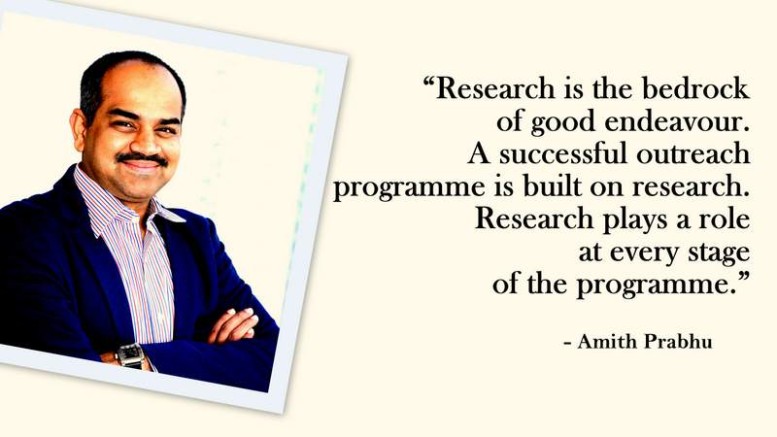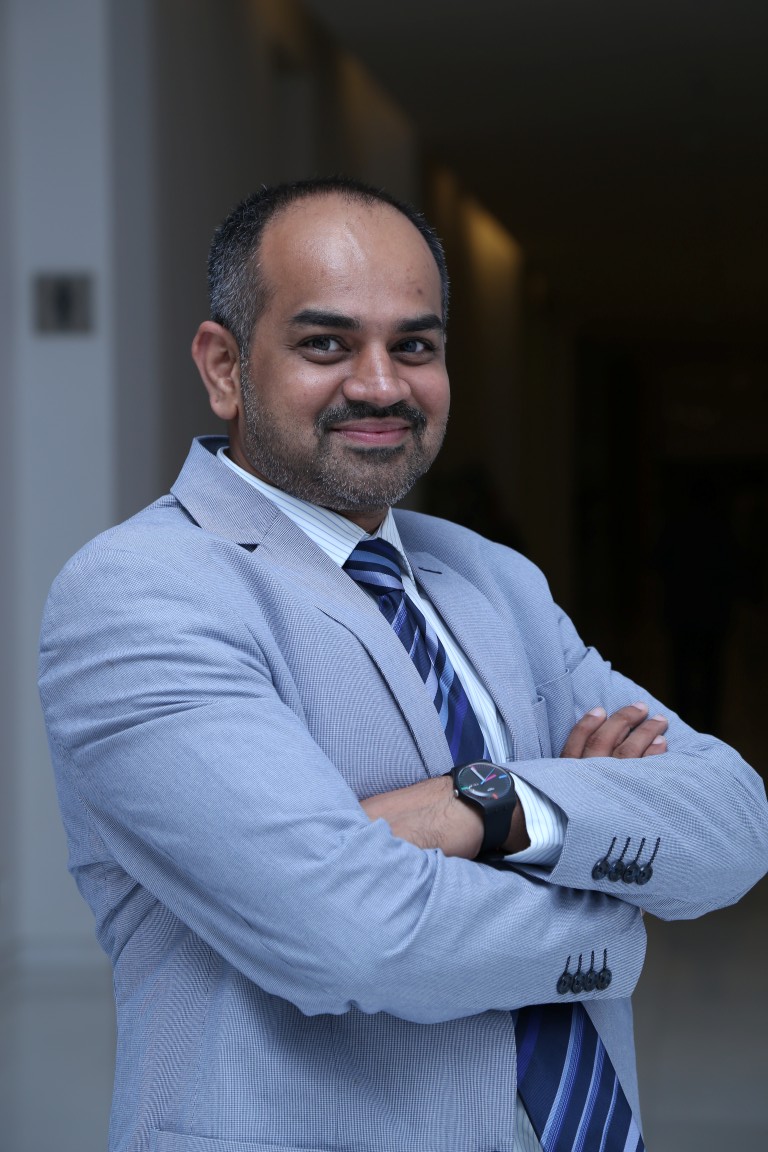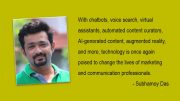Research is the bedrock of any good endeavour. Marketing communications comprises a variety of outreach tactics to various stakeholders. A successful outreach programme is built on research. Research plays a role at every stage of the programme. Let us examine six steps to creating a campaign and how research makes a difference.
Situation Analysis:
Research helps in mapping the situation and understanding the scenario better. An environmental scan is essential to prepare for success. All award winning campaigns were built around insights of what and how the competing brands did to garner more sales. The first step to achieving high impact and great outcome starts here. This is about where we are.
Objective Setting:
A scenario map and business goals help frame the marketing and communications objectives. One flows from the other. This is also the phase when the target audience is brought to life so that a better understanding of the objectives is arrived at. Research plays an important role in this exercise. This is about where we want to get to.
Strategy Building:
The objectives guides the strategy to be adopted. A strategic framework leads to the big ideas that help us make informed decisions when we are stuck in a bind. A strategy is usually the most difficult to arrive at. But good research in most cases helps formulate a good strategy. This is about how we want to get there
Tactics Planning:
From strategy stems the tactics that one undertakes, which are referred to as outreach or activities or tasks. Some of them are big ideas and some are mundane but they all help in creating increased awareness, a clearer intent or a new found desire to buy a product or service. Research is at the heart of arriving at good tactics. This is about what we have to do to get there.
Action Management:
Managing the above requires a lot of detailing. From timelines to work flow and preparing for potential issues. A successful programme is only as good as how people who are targeted are made to feel and what are the lasting memory it creates. Again, research can help us execute flawlessly by getting the place and timing right. This is about the where and the when of every little thing.
Control:
Every programme has to be accounted for. There are various methods to ensure accountability. Research and analysis is the most commonly adopted method of evaluation. The subsequent programme can be planned basis the outcome of the current programme. This is about measuring success or introspecting failure. Control also means periodically taking stock during the course of the programme. It is about crisis preparedness as reputational risk cannot be compromised.
The above process can be summed up with by collating the first letters of each of the milestones to coin SOSTAC. As you would have realised at every step research plays an important role in defining the campaign. Deeper the research, stronger the campaign.
The three critical areas where research interventions make a difference are:
Knowing the client, Finding your market and Choosing media outlets. Public Relations like most other disciplines is as much about planning as it is about executing.
Research in marketing communications has several benefits. Some of them are-
Research helps in strategy formulation and building a robust plan: Understanding the consumer which are the clients’ consumers) is integral to successful planning.
Research helps validate claims: Research is of two types and both these are essential to be able to offer proof points. Primary research is conducted by one self or outsourced. This in-house data can come in the form of online surveys, field surveys, focus groups, etc. Secondary research is conducted by a third-party, and can be pulled from sources such as online articles, scholarly journals, reports, books, etc.
Research helps in making informed decisions: There are times when a programme will find road block. This is the time when research can help in taking a call or making choices that otherwise are left to gut feel.
Research helps in analysing and measurement: All programmes have goals and research before and at the end of the programme help us understand if these goals have been achieved and to what extent.
Let’s take the example of the launch of a newly formulated health tea. This will typically have two launches. One launch exclusively for journalists who write about business, health, lifestyle and brands. The other launch directed towards consumers. For the first audience, research will help find the media universe to target, the cities to be covered, the day of week and time of day when the launch is to be carried out. For the second set of audience a brand ambassador will be ideal. Research will inform us about the right fit, the markets to cover and the activity to undertake. In the absence of solid research all activities planned for the launch of the tea will be based on hearsay and gut feel which will neither do justice to the brand or to the investment into the launch of the new variant.
For a while now Integrated Marketing Communications has been the talk among marketers. This model tries to embrace paid, owned and earned activities into one super punch that gives more bang for the buck. With the dawn of digital media, the IMC model has grown stronger. People use social networks like Facebook and Twitter for research. These are repositories of enormous knowledge as well as great platforms to seek insights from fans, followers and friends in a short span of time.
The bottom-line is that, Research is indispensable. Good research leads to strong campaigns. Marketing communications is ultimately about good campaigns. Brands and brand managers are remembered for memorable campaigns. One bad campaign can drown out all previous good campaigns. Time spent in planning never goes waste. Good plans make execution seamless and exciting. At the heart of marketing communications is an unquenchable thirst for insights. As the world becomes increasingly data driven research will remain a mainstay.










Be the first to comment on "Research in Marketing Communications"